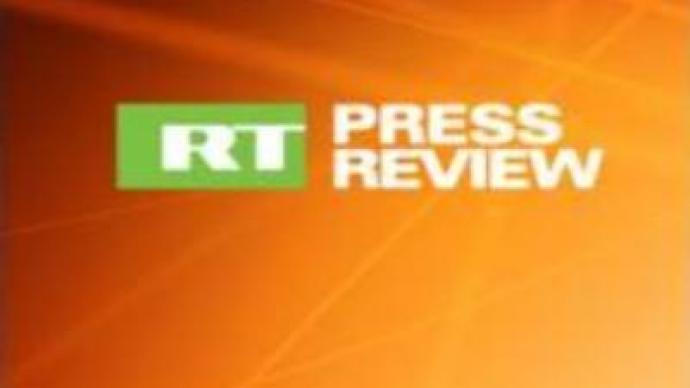Russian press review, 23.04.07

The Russian press looks at the social structure of the population of Moscow. It also covers the crisis in Kyrgyzstan and quotes the interview and excerpts from the book by Leonid Kuchma, the former President of Ukraine.
The Kommersant daily has some interesting statistics on the social structure of the population of Moscow. Apparently the gap between the haves and the have-nots is getting wider, while the income of the middle class is rising sharply. In 2006, the average monthly income of a Muscovite grew by 22.8 % and reached around $US 1200. 30% of Muscovites (3 MLN people) have an income of over $US 1000 a month, and 13% of Muscovites, mainly senior citizens on pensions, have an income lower than the poverty level (less than $US 200 per month).The statisticians say that monthly wages in Moscow are only two to three times higher than the average wages in Russia, but Muscovites are luckier as many have additional income from property, investment and business transactions.Vremya Novostey writes that in Kyrgyzstan tear gas was employed as a means in the struggle for democratic reform. After the police shot gas projectiles into the crowds all political illusions that whoever might have had were dissolved in the eye-biting chemical.The same newspaper has an interview and excerpts from the book by Leonid Kuchma, the former President of Ukraine. The book published recently is called “After the Maidan”. Mr Kuchma who served as President for 10 years from 1994 to 2004 writes that the Maidan of 2004 was obviously not the last. The book had actually been finished before the latest events took shape. Now Leonid Kuchma says that the Maidan, 2006 is not going to be the last either.Asked if he regretted that he hadn’t used force to stop the 2004 unrest, the ex-President answered that he felt happy that he hadn’t. He said, then everyone was expressing their opinion peacefully, if sometimes insistently to the extreme, and peace is always worth maintaining.Trud publishes the results of an opinion poll that contains a single question: how do you see the future economic and social system of Russia? Here are the results quoted by the newspaper:Mixed economy composed of the elements of free market and Socialism – 45%Free market economy – 28%Socialist, Soviet type economy - 18%The paper compares various angles of the election process in France with that in Russia. Alexander Rahr, a German political scientist, thinks that a two-party system is being slowly built in Russia. Ghosts of the past are the main obstacle in the way of liberal democracy in this country, Mr Rahr believes: “After decades of Communist rule in the past, the people don’t trust political parties. They prefer voting for personalities, and for a true democracy it is very important that the people vote for ideas rather than personalities.”Nezavisimaya Gazeta offers a few stories on the spring armed forces conscription campaign. In the past decade Russia has been trying to reform its army. By 2008 altogether 81 larger units comprising of over 125,000 personnel will become fully professional. The conscription term has already been reduced to one and a half years from two and soon only one year of service will remain.The paper quotes Viktor Ozerov, Chairman of the Defence and Security Commission of the upper chamber of the Russian parliament as saying: “Russia is not yet a rich enough nation to afford a fully professional army. Simply eliminating conscription won’t make it professional. A whole new composition of mobilisation resources will have to be in place before that.”The new space tourism programme is about to be announced, write two papers simultaneously: Vremya Novosteyand Komsomolskaya Pravda. A round trip ticket to the Moon aboard a converted Soyuz space craft will cost over $US 100 MLN and will require a standard space research medical certificate plus months of hard training at the Russian Space Centre.
You can share this story on social media:












